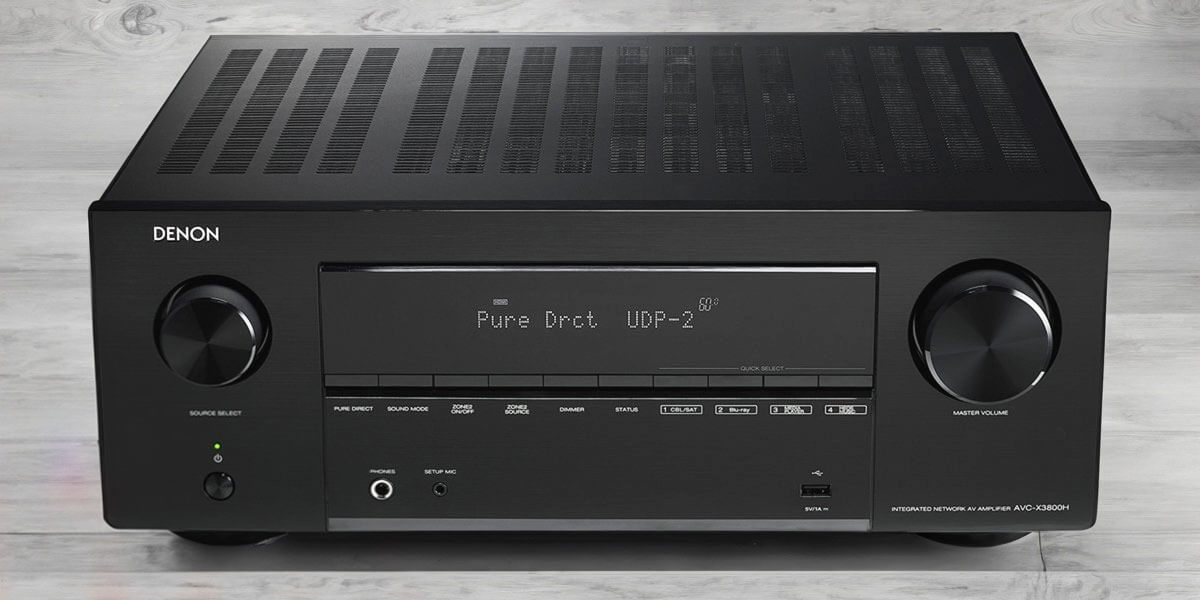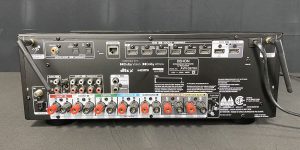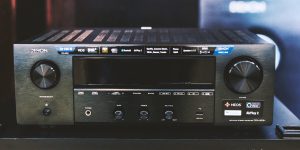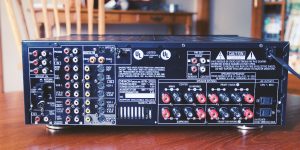The most important step in building a balanced and satisfying audio-visual system is to set the budget for the AV receiver, as it acts as a distribution center between the other components. Therefore, your approach should be thoughtful whether you are new to home theater systems or an experienced user. To begin with, you should honestly and clearly consider some factors and answer questions about what exactly you expect the result to be. That way, the process won’t turn into a nightmare. I wrote this article to help you determine your AV receiver budget and make an informed decision that fits your preferences and overall system configuration.
Establishing an adequate budget for an AV receiver
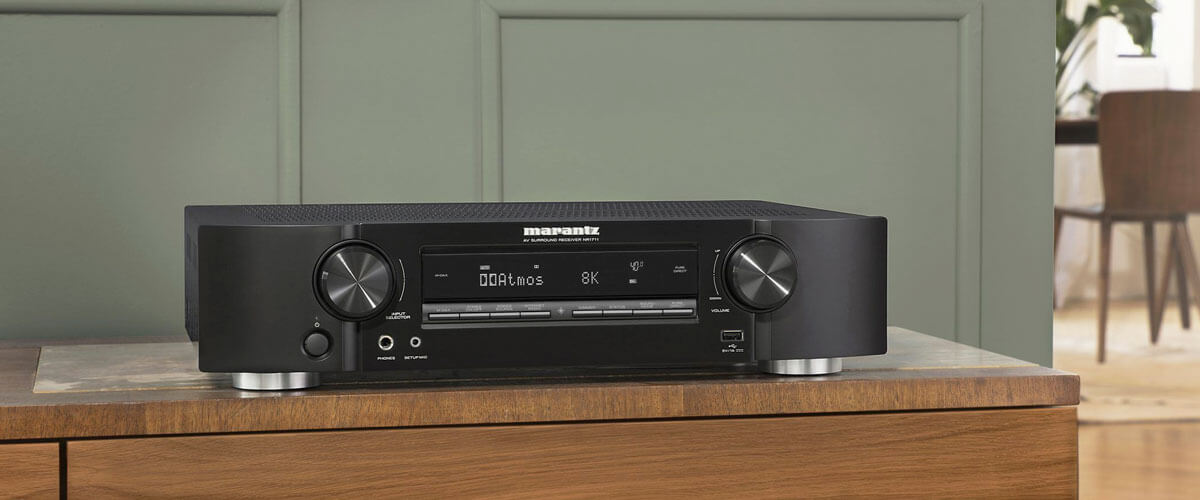
Briefly, I will highlight these factors to determine the budget for buying a receiver for your home system:
Component matching: If you’ve invested in high-quality speakers, budgeting for an AV receiver rather than buying something cheap is wise.
Speaker complexity: Choose a receiver with the appropriate channel quantity for your speakers and room.
Room size: Don’t buy a receiver that is too expensive and powerful for medium or small rooms.
Future-proofing: Think about the lifespan and the possibility of expanding the system over time.
Feature requirements: Determine exactly what features you need from your AV receiver. Of course, the more expensive the receiver, the more features and functions it can offer. But is it worth overpaying for something you won’t use? Thinking through all the aspects will make your choice much easier and save you money.
One important fact is worth noting: you don’t have to buy an expensive/most expensive AVR to get “good” sound. Consider receivers from the middle or budget price category if you are a beginner. This is enough to familiarize yourself and understand your future needs. Even models starting at $300 are quite capable of offering basic functions.
In my opinion, the most optimal range of cost of a quality receiver in all respects is between $1000 and $2500. There are more expensive models, but they are designed for huge rooms and can distribute sound to 3 or 4 zones. Unless you own a mansion, don’t even look in that direction. It’s not worth it.
Let’s look at some specific examples:
So, if you have a set of stereo speakers for about $1000, it is reasonable to choose a receiver in about the same price segment (from $1000-$2000). And if you have, for example, an entry-level 5.1 surround sound audio system for $300 bought at the nearest video store, then buying a receiver for more than $1000 would be impractical.
In fact, your individual circumstances may add to these basic factors and comments. So just take the above as a basis, and act based on your preferences and capabilities.
Do more expensive receivers affect sound quality?
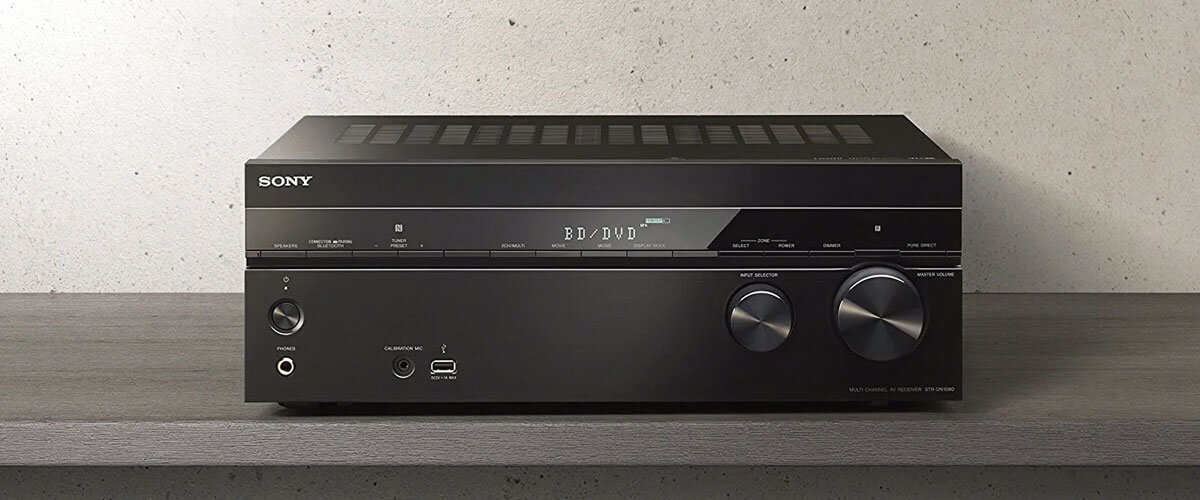
Yes, the receiver can affect the sound quality in certain ways. However, the connection between the cost of an AV receiver and its impact on sound quality is multifaceted. Indeed, more expensive receivers usually have more advanced processing, better build quality, advanced room correction technologies, and additional features. Still, the direct correlation between price and sound quality is not always linear. You should always remember that it’s not only the AVR that determines the overall sound picture but also the speakers, the room acoustics (room size), and the overall setup of the system.
However, I dare to remind you of the law of diminishing returns. After a certain point, a significant increase in receiver cost may not yield a proportional increase in sound quality. For example, if your speaker system is relatively modest, investing in a top-of-the-line receiver simply won’t produce a noticeable improvement in sound.
So, we can conclude that an expensive receiver alone won’t improve your life, but it will certainly make a difference. And for optimal home theater sound, it is important that all components of the system sound as coherent as possible. Good luck!
FAQ
Should you spend more on receivers or speakers?
Both receivers and speakers play an important role in your audio system. Deciding which to spend more money on depends on your current configuration and goals. I recommend taking a balanced approach. If you have high-quality speakers, investing in a receiver that complements their capabilities can improve the overall experience. Conversely, if your speakers are more budget-friendly, a mid-range receiver that matches their level will suffice.
Do expensive AV receivers sound better?
In general, yes. Expensive AV receivers often offer better sound quality. However, sound quality is subjective and can depend on various factors, including room size, speaker quality, and your personal preferences. The overall effect on sound quality depends on the interaction of all components and the listening environment.

